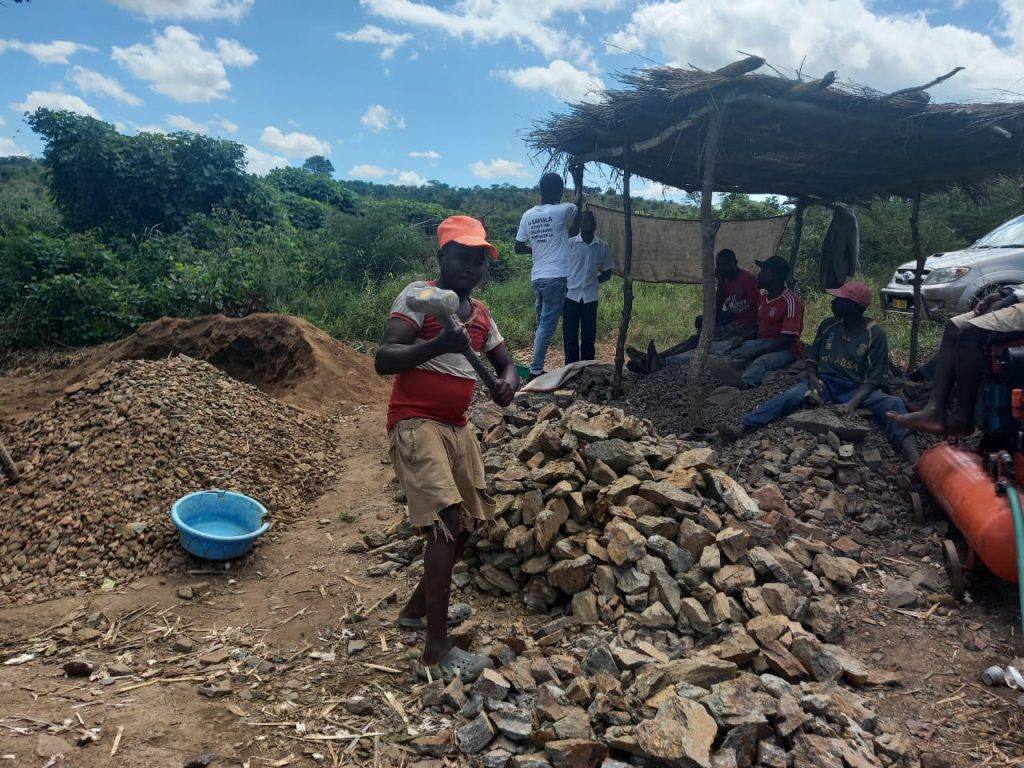Small-scale miners hail project for improving lives
Small-scale gold miners in Traditional Authority Phalula in Balaka have hailed the Sustainable Mining Applied for Livelihood Advancement (Samala) for Youth and Women Project being implemented by Centre for Environmental Policy and Advocacy (Cepa) for improving their operations and eradicating child labour and environmental degradation.
Tagwirizana Cooperative secretary Blackson Gondwe said since the launch of the project in 2019, mining communities in the area have learnt how to manage the environment and fight child labour.

“When I came to this area in 2003 from Mzuzu, environmental degradation was rampant and people relied on charcoal burning as a source of income.
“Later, the people started mining gold along river banks and their lives started improving and they started building houses with iron roofs.
“Personally, I have benefitted a lot from gold mining and Cepa’s intervention as I am able to educate my children. My first born daughter is a graduate in nursing and I have also built a house.
“I thank Cepa for teaching us how to protect the environment, improve our operations so that we benefit more, and end child labour,” he said.
Another artisan miner from group village head Chitimbe, Misheck Garaja said he has benefitted from gold mining through Cepa’s intervention as he has built a house and is rearing livestock, including goats.
He said: “In the past, we used to work individually but when Cepa came, they recommended that we form cooperatives. When we sell our gold together as a cooperative, it fetches better prices and we benefit more.”
Chisimbwiti Cooperative member Eneless Jonasi said her family’s welfare has improved since she and her husband started mining gold.
She said: “When we started mining, we were not benefiting much but since the launch of cooperatives, we are able to realise more profits and have learnt how to keep money and manage our finances.
“My family has benefitted a lot and we can afford enough food and send children to school.”
Cepa programmes officer Charles Kabambe said his organisation is helping in the implementation of the Artisanal Mining Policy (2014) through enforcement and compliance.
“In the 1981 Mining Policy, artisanal mining was illegal but after looking and the importance and socio-economic role that the sector is playing, government decided to formalise it.
“So people need to get licences and permits to mine in Malawi. It was also one way of ensuring that government can follow up on issues of environmental degradation, smuggling of gold and child labour which is rampant in small-scale gold mining because of its high value,” he said.
Kabambe said his organisation is happy with the communities’ response to the project which has resulted in improved health, safety and environmental management.
He said: “Since we launched the project, we haven’t had cases of severe injuries or death after Cepa, the Department of Mines, and the Department of Environmental Affairs came here to train them.
“The Reserve Bank through Export Development Fund is buying gold through these cooperatives which has provided them with a steady market.”
Tagwirizana and Chisimbwiti cooperatives have about 50 members each.





